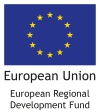P1 Competitive economy
1.1. New Central Baltic knowledge intensive companies
Central Baltic
01.11.2015 - 31.01.2018
€1 338 502
€1 078 053
A cross-border business acceleration process is needed to be able to compete with regions with stronger startup scene. The Springboard project supports the development of new joint and co-operating knowledge-intensive startups springing up of the shared smart specialization strengths of the participating regions (ICT, cleantech and healthtech).
The project provides its target group a supported path towards entrepreneurship by implementing three joint 10-week business acceleration programs and coaching of the most potential teams. Targeted B2B matchmaking activities will also be organized in order to support already established early-stage companies. By combining expertise across borders, it is easier to find potential business ideas and to establish globally competitive joint teams with versatile know-how and experience.
The main result of the Springboard project is an increased capacity to produce international startups in the Central Baltic region, which includes the enhanced support in the process of turning university-based business ideas to viable businesses and fostering of cross-border cooperation in the early stage of business development. The Springboard will achieve 15 new joint or co-operating knowledge intensive Central Baltic companies aiming for rapid growth.
Turku Science Park Oy
Country: FI
Partner budget: 398.774 EUR
Amount of ERDF funding: 299.081 EUR ERDF
Turun yliopisto
Country: FI
Partner budget: 197.967 EUR
Amount of ERDF funding: 148.475 EUR ERDF
SA Tallinna Teaduspark Tehnopol
Country: EE
Partner budget: 224.599 EUR
Amount of ERDF funding: 190.909 EUR ERDF
Tallinna Tehnikaülikool
Country: EE
Partner budget: 186.352 EUR
Amount of ERDF funding: 158.399 EUR ERDF
Latvijas Tehnoloģiskais parks
Country: LV
Partner budget: 156.110 EUR
Amount of ERDF funding: 132.694 EUR ERDF
Rīgas Tehniskā universitāte
Country: LV
Partner budget: 174.699 EUR
Amount of ERDF funding: 148.494 EUR ERDF
Achieved results
Springboard established 14 co-operating and four joint companies
Springboard met and exceeded its result indicators. Great cross-border business teams were established and cooperative and joint companies were registered. The jointly designed and implemented cross-border cooperation model worked well and formed a sustainable formula for future start-up development. In total, 14 co-operating and four joint companies were established.
Cross-border cooperation was used to learn about the capabilities and strengths of the partnering areas as well as the local needs. Project activities were implemented in parallel in all participating countries, using interactivity and streaming where possible. Kick-off events and demo days as well as business -to-business matchmaking were organized in cooperation between the partners to foster the cooperation between start-up teams and participants from all countries.
Springboard accelerator programmes were arranged in parallel in all three participating cities Turku, Tallinn and Riga to bring interactivity to the programmes. Each acceleration programme started with joint kick-off event followed by ten weeks of training programme. After that, the teams from each country came together for Demo Day and pitching competition to show their progress.
In addition, cross-border mentoring was put into practice during the accelerator program by producing an electronic mentor pool and giving the mentors possibilities to travel and meet the teams cross-border. Business-to-business matchmaking events were arranged in all participating cities and International mentors had coaching meetings with the accelerator teams. Each of 81 participating teams was offered several mentoring meetings to support developing their idea and starting the company.
The project helped to internationalise the learning process and accelerate active communication between the team members. For reinforcing the transition of business ideas to viable start-ups, the universities and business development organisations worked closely together to foster cross-border cooperation in the early stage of business development.
Based on the experience from the successful acceleration programme, a Startup Manual was published to provide information for starting businesses.
- In total, 14 co-operating and four joint companies were established.
- The project helped to internationalise the learning process and accelerate active communication between the team members.



